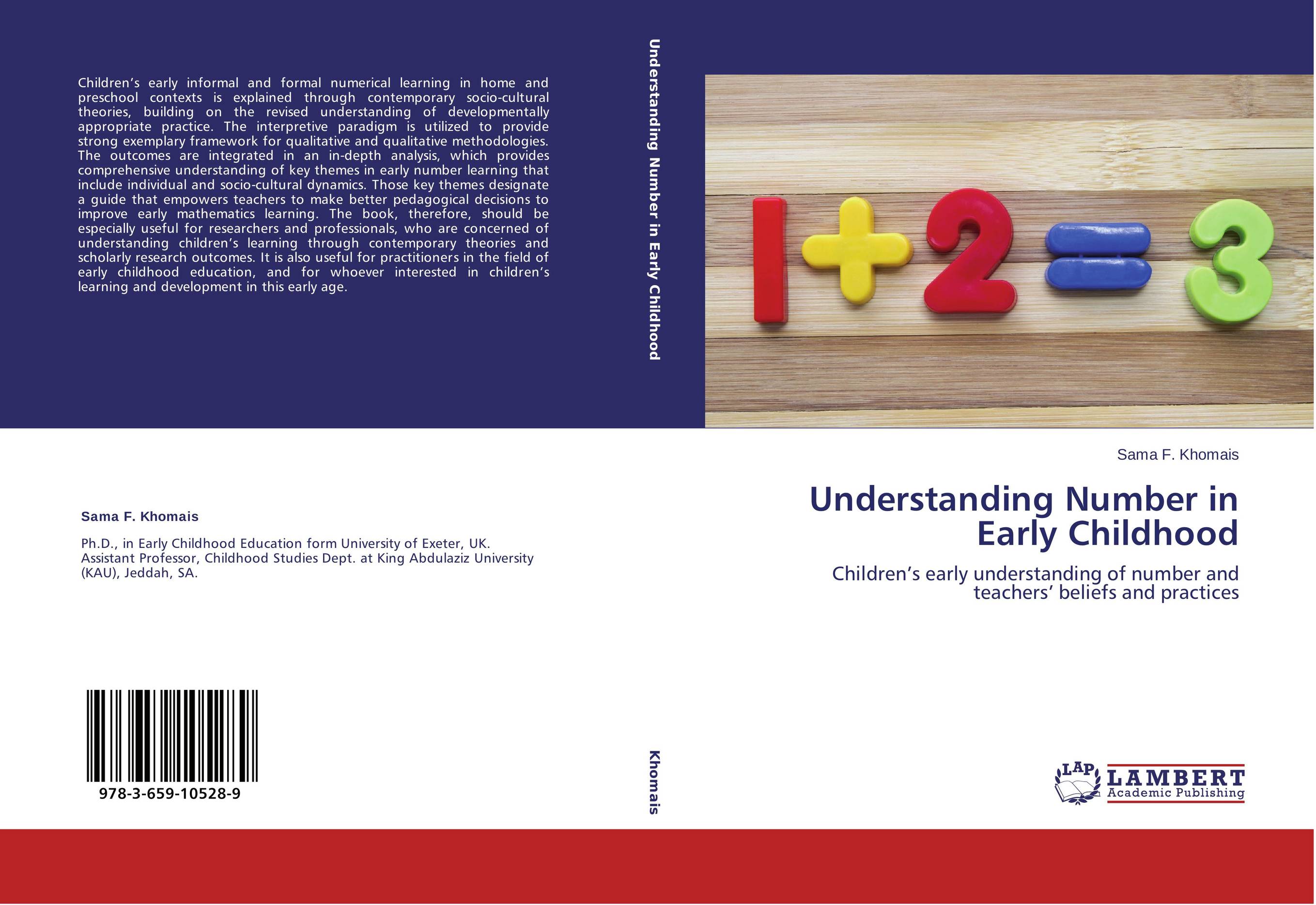| Поиск по каталогу |
|
(строгое соответствие)
|
- Профессиональная
- Научно-популярная
- Художественная
- Публицистика
- Детская
- Искусство
- Хобби, семья, дом
- Спорт
- Путеводители
- Блокноты, тетради, открытки
Understanding Number in Early Childhood. Children’s early understanding of number and teachers’ beliefs and practices

В наличии
| Местонахождение: Алматы | Состояние экземпляра: новый |

Бумажная
версия
версия
Автор: Sama F. Khomais
ISBN: 9783659105289
Год издания: 2014
Формат книги: 60×90/16 (145×215 мм)
Количество страниц: 404
Издательство: LAP LAMBERT Academic Publishing
Цена: 42687 тг
Положить в корзину
Позиции в рубрикаторе
Сферы деятельности:Код товара: 133166
| Способы доставки в город Алматы * комплектация (срок до отгрузки) не более 2 рабочих дней |
| Самовывоз из города Алматы (пункты самовывоза партнёра CDEK) |
| Курьерская доставка CDEK из города Москва |
| Доставка Почтой России из города Москва |
Аннотация: Children’s early informal and formal numerical learning in home and preschool contexts is explained through contemporary socio-cultural theories, building on the revised understanding of developmentally appropriate practice. The interpretive paradigm is utilized to provide strong exemplary framework for qualitative and qualitative methodologies. The outcomes are integrated in an in-depth analysis, which provides comprehensive understanding of key themes in early number learning that include individual and socio-cultural dynamics. Those key themes designate a guide that empowers teachers to make better pedagogical decisions to improve early mathematics learning. The book, therefore, should be especially useful for researchers and professionals, who are concerned of understanding children’s learning through contemporary theories and scholarly research outcomes. It is also useful for practitioners in the field of early childhood education, and for whoever interested in children’s learning and development in this early age.
Ключевые слова: early mathematics, socio-cultural theory, teachers beliefs, Pedagogical Content Knowledge, conceptual and procedural knowledge, developmentally appropriate practice, early numerical learning, informal and formal mathematics, motives in mathematics, mathematics subject knowledge, qualitative methodologies



